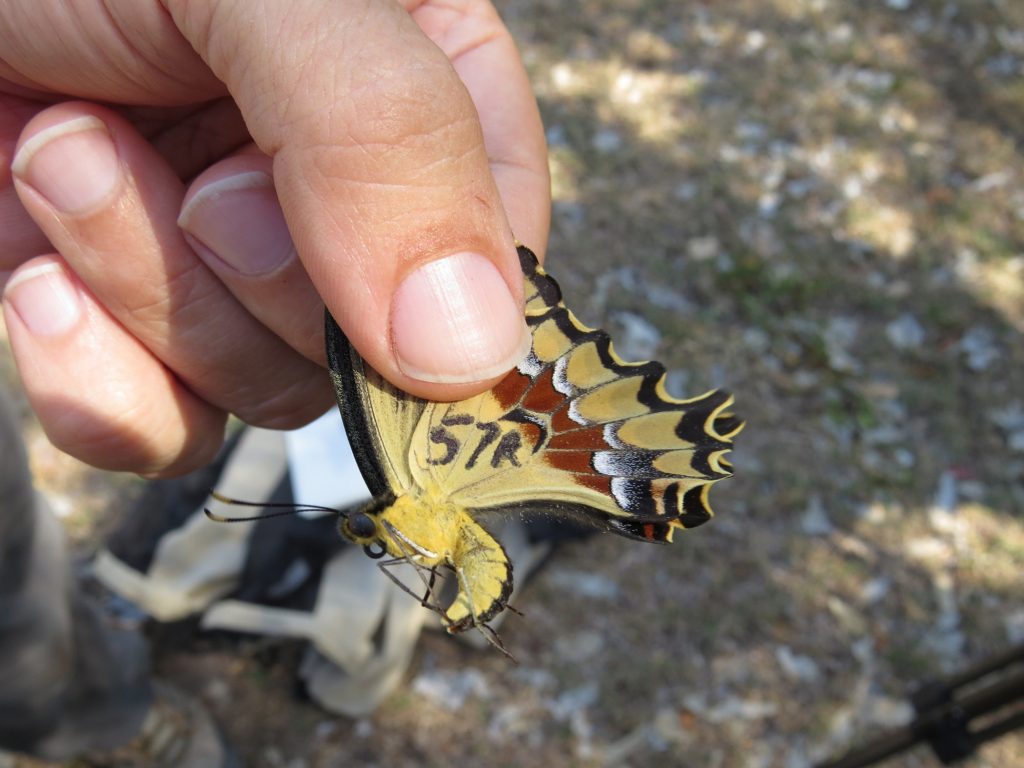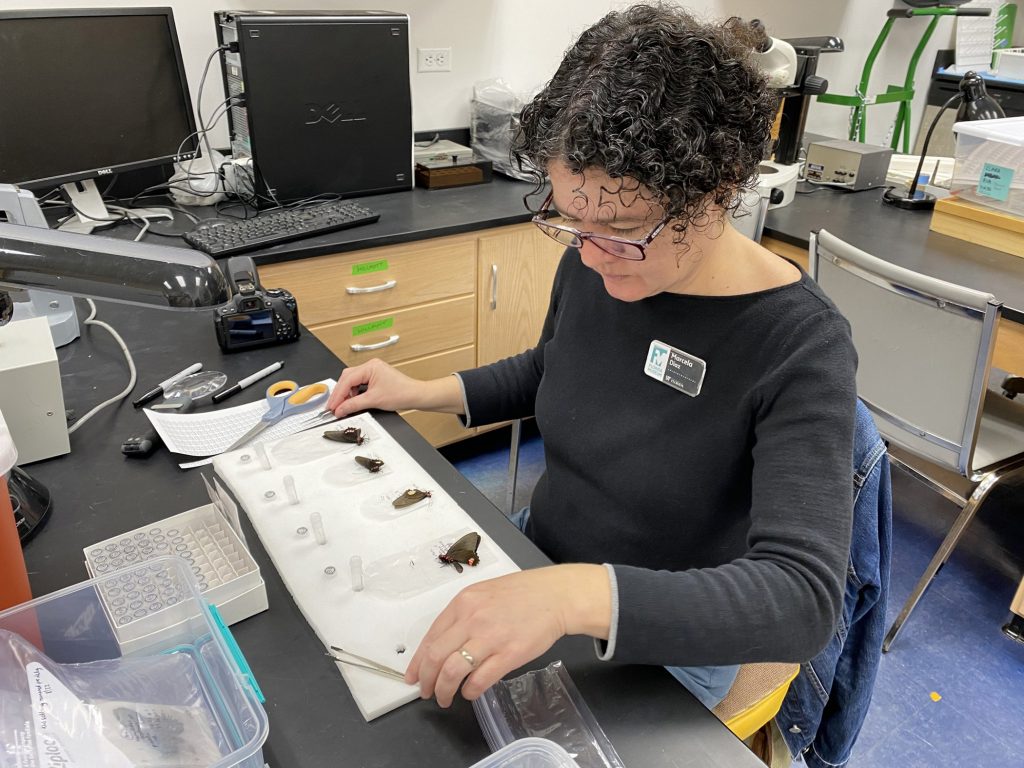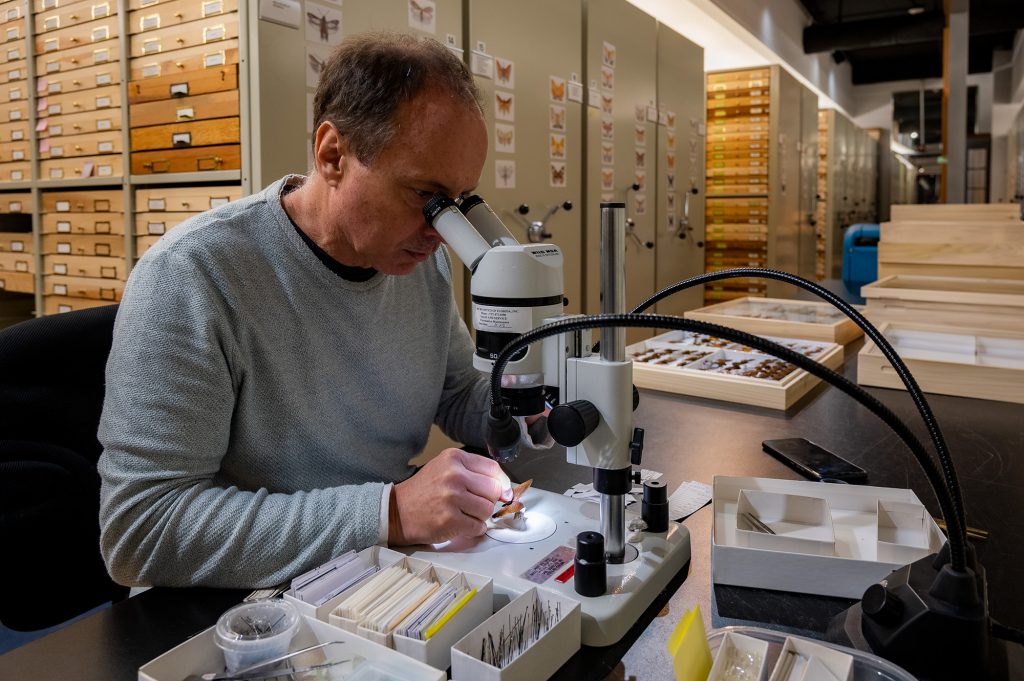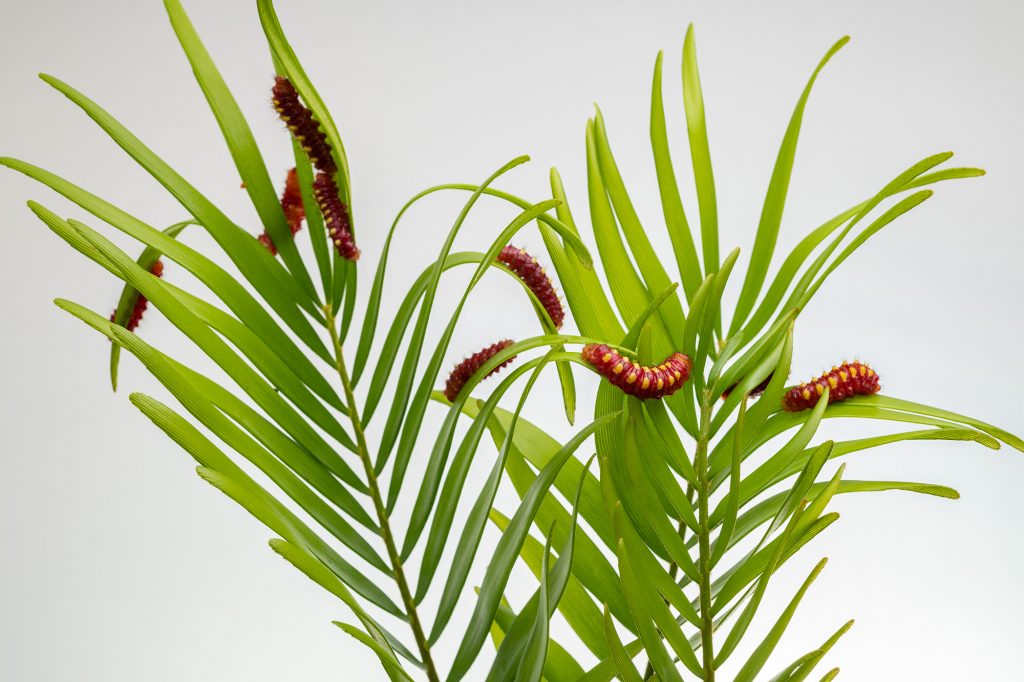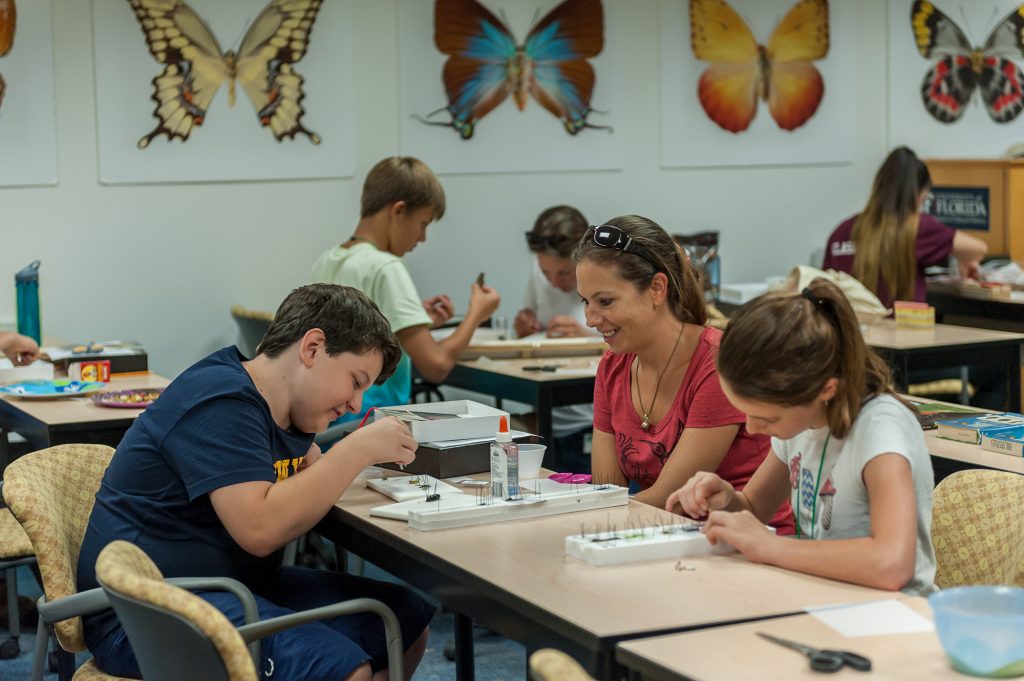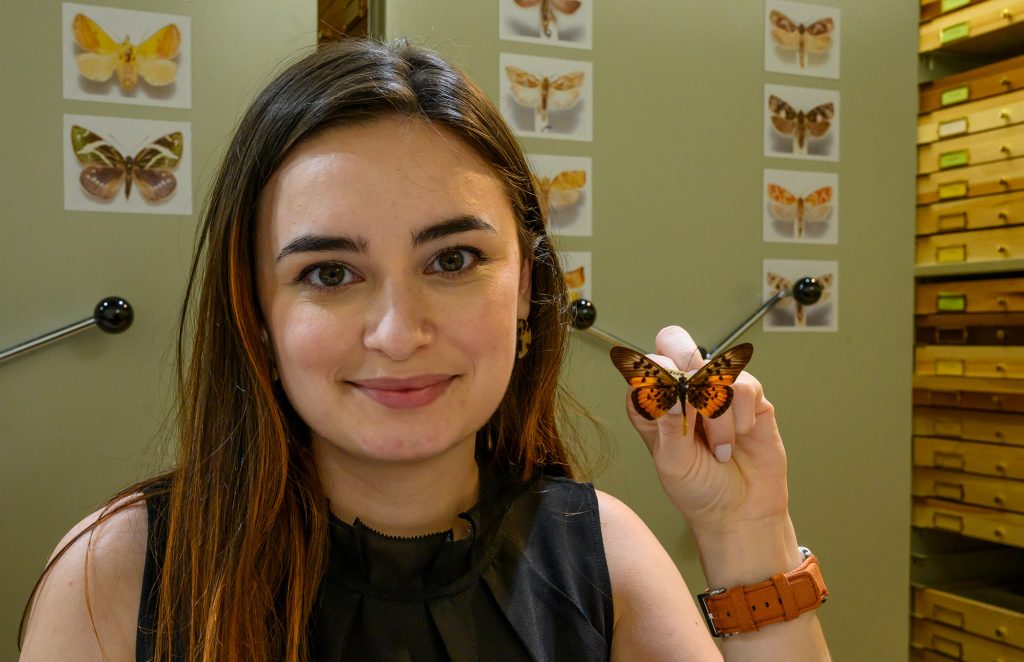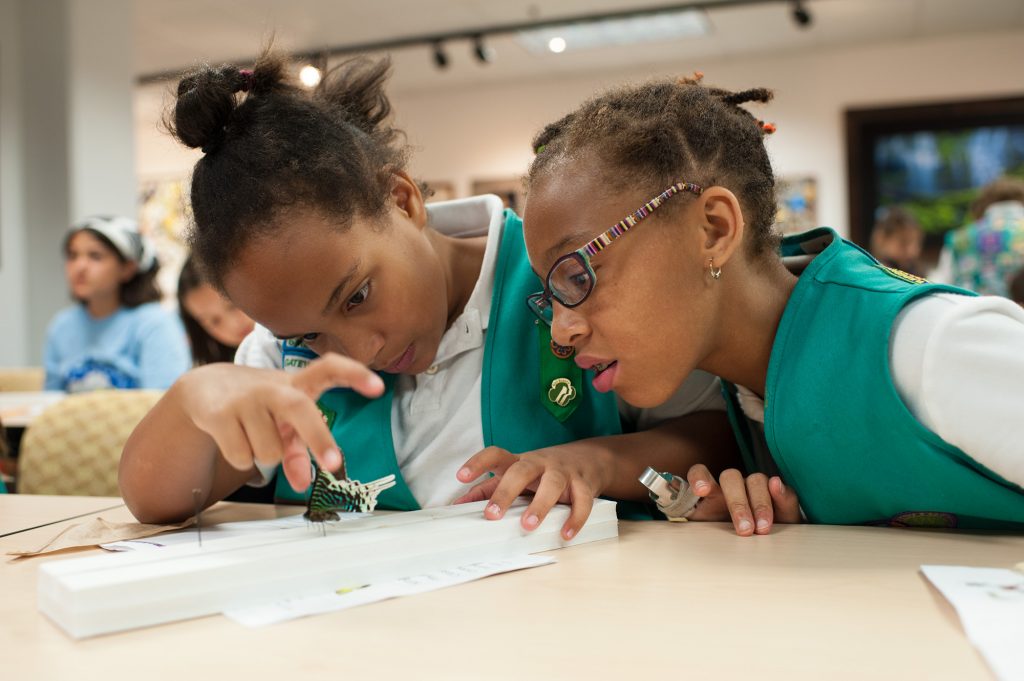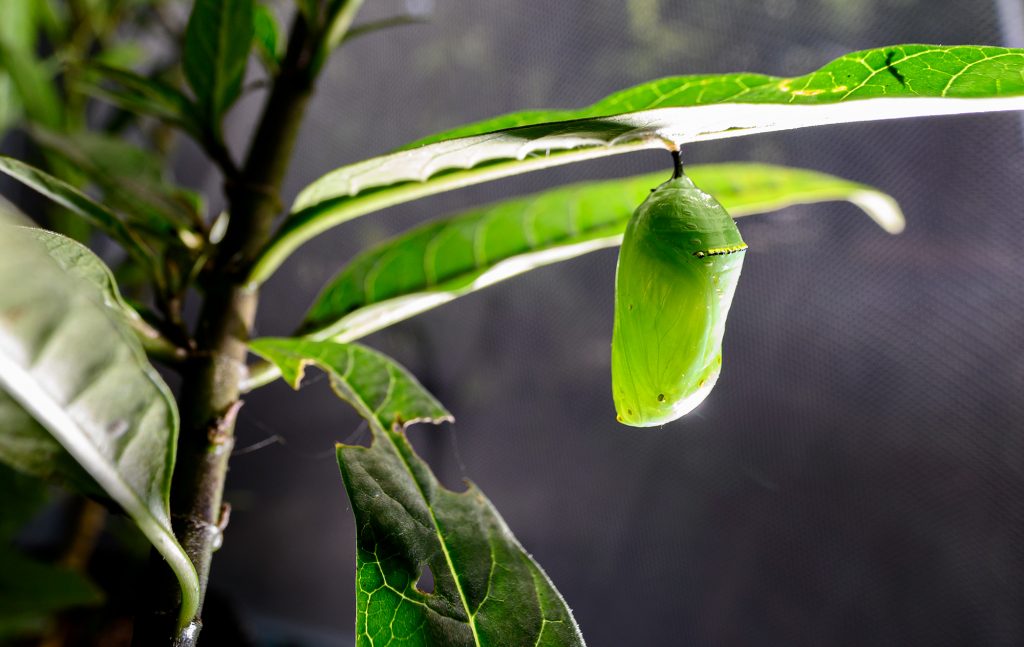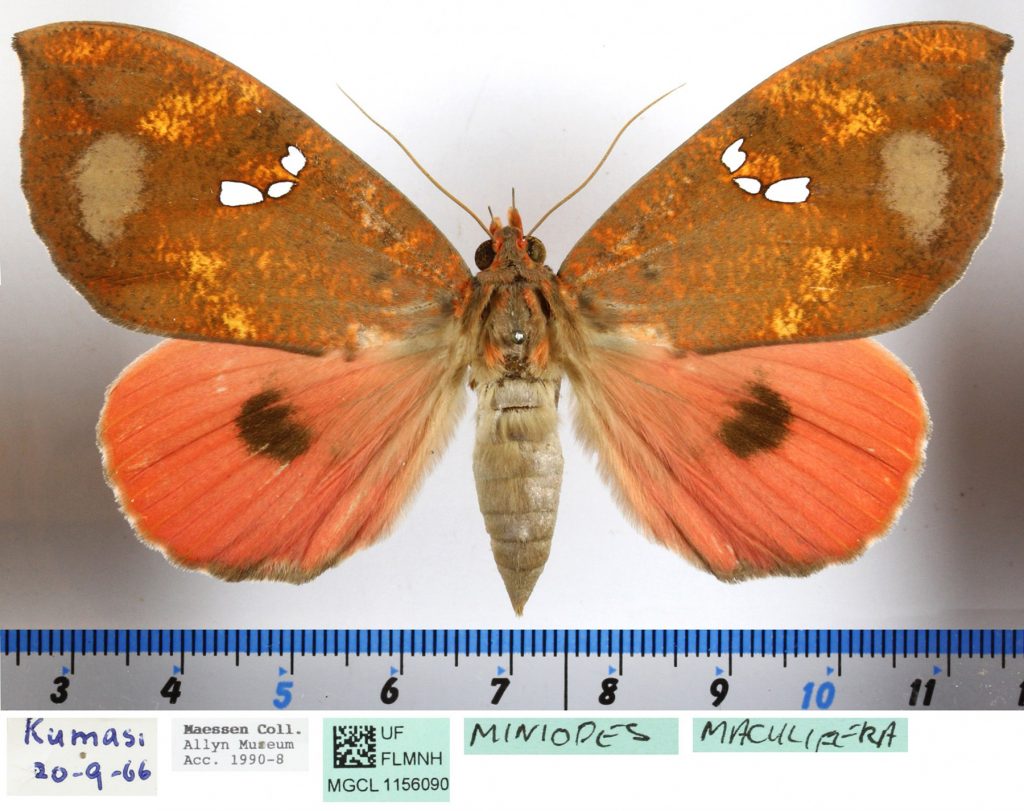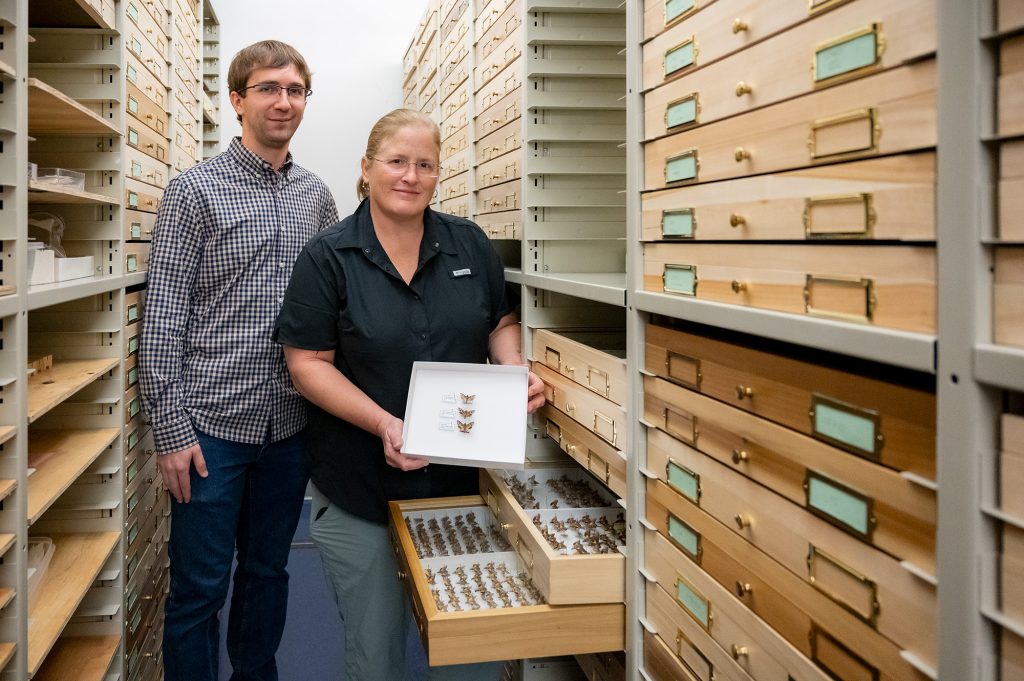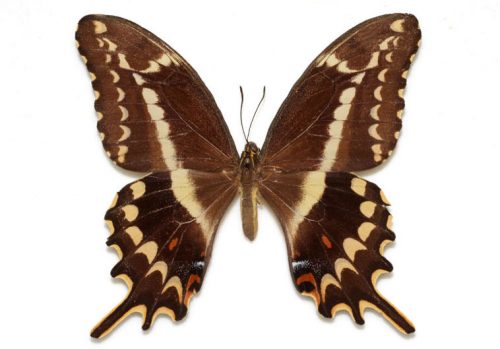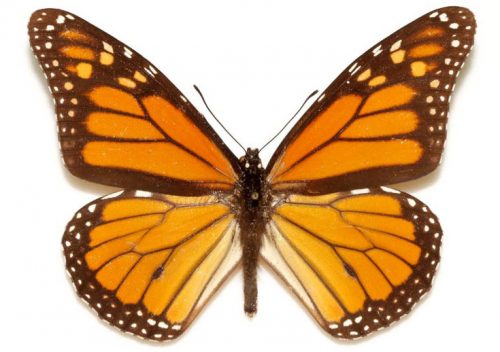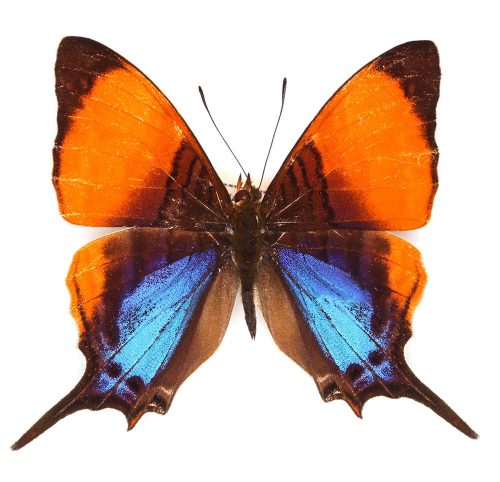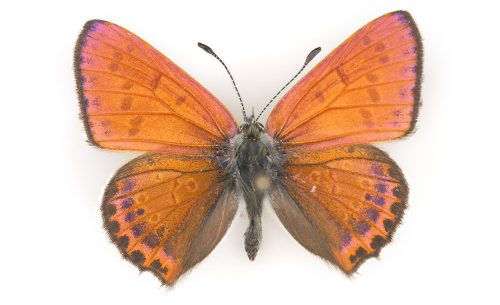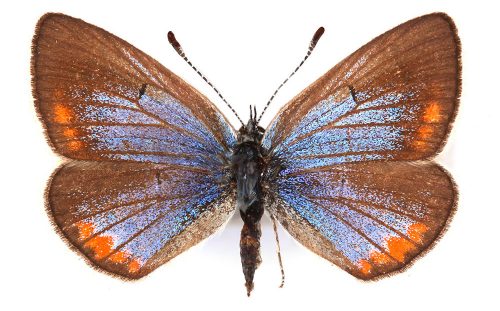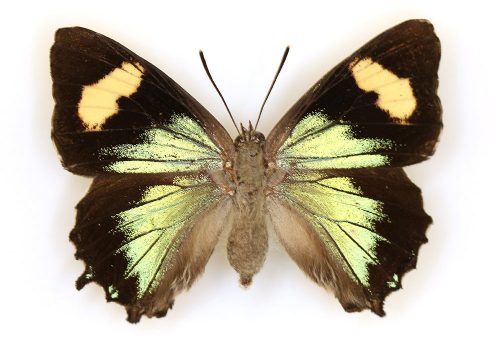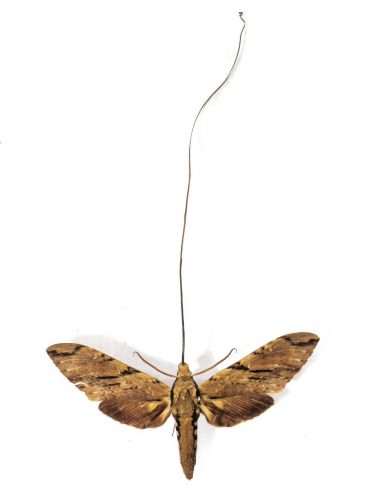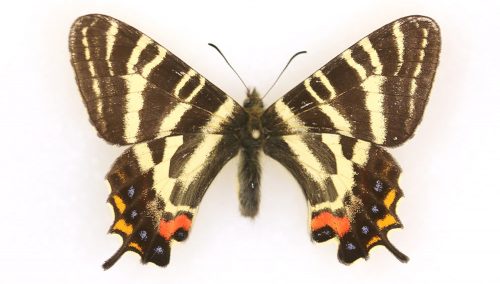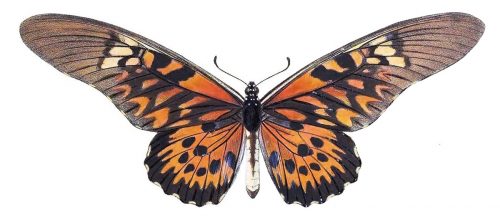Letter from the McGuire Center’s Director
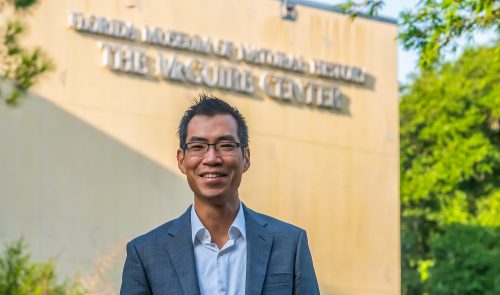 It has been 20 years since the McGuire Center for Lepidoptera and Biodiversity opened thanks to the visionary support of Dr. Bill and Nadine McGuire and the dedicated commitment of founding director Dr. Thomas Emmel. We are proud of what has been accomplished. Gifts of collections have doubled the size of our specimen holdings, and we now have one of the world’s largest butterfly and moth collections. Loyal donors have created endowments that enable us to bring experts from around the world to curate and study valuable specimens. Over 30 of our Ph.D. and master’s students have graduated and found jobs in academia, conservation, and industry. Collectively, our staff and students have produced over 1,000 research publications and authored books for scientific and educational audiences.
It has been 20 years since the McGuire Center for Lepidoptera and Biodiversity opened thanks to the visionary support of Dr. Bill and Nadine McGuire and the dedicated commitment of founding director Dr. Thomas Emmel. We are proud of what has been accomplished. Gifts of collections have doubled the size of our specimen holdings, and we now have one of the world’s largest butterfly and moth collections. Loyal donors have created endowments that enable us to bring experts from around the world to curate and study valuable specimens. Over 30 of our Ph.D. and master’s students have graduated and found jobs in academia, conservation, and industry. Collectively, our staff and students have produced over 1,000 research publications and authored books for scientific and educational audiences.
Initiatives, such as the McGuire Center’s caterpillar rearing facility and the living Butterfly Rainforest exhibit, inspire students and the public to appreciate the wide array of butterfly and moth species. Additionally, our Center has developed many community partnerships, including providing butterfly encounters to cancer patients and planting butterfly gardens at schools across Florida.
As I reflect on our past accomplishments, I look to the future with great anticipation. We plan to continue growing our specimen holdings and educational impact, and expand into new research areas. These include gaining a better understanding of how butterflies and moths have responded to rapid environmental changes that are happening to our planet. I am excited to be part of the McGuire Center’s bright future, and I look forward to the many discoveries to come.
Sincerely,
Akito Kawahara
Vision for the Future
As a leading academic research institution, the McGuire Center is dedicated to cultivating new methods that employ the latest technologies to extract meaningful data from its collections and explore pressing research questions. Moving forward, Center faculty and scientific staff will continue to prioritize mentoring students, fostering their academic journeys though partnerships on grant-funded research, and encouraging novel scientific approaches that enhance the value of the Center’s collections.
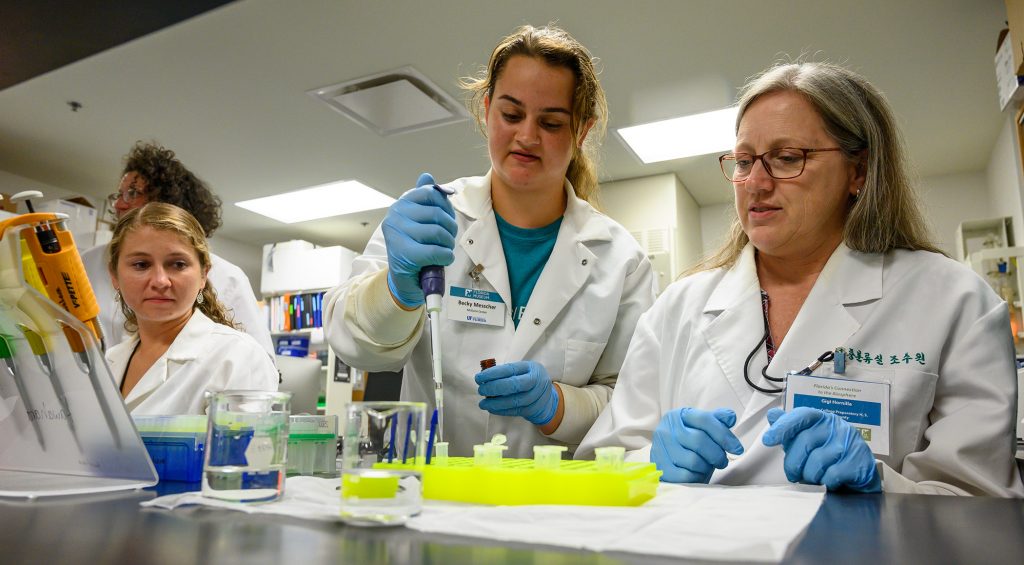
Newly hired assistant curator Vaughn Shirey will collaborate with labs at the McGuire Center and programs such as the National Ecological Observatory Network (NEON), on projects related to the global distribution of butterflies. Combining digitization with AI and computer modeling, he will analyze the vast specimen data stored in the McGuire Center’s collections and rapidly expanding archive of live images. These approaches will help identify butterflies and moths that face the greatest threats along with the geographic areas facing the most significant conservation need.
The Center will continue to grow its collections and serve as a hub for global Lepidoptera experts and enthusiasts. It will combine traditional research methods with new cutting-edge technology to advance the study and conservation of butterflies and moths.
Research Highlights
click butterflies to learn more
Florida and Caribbean Lepidoptera Surveys
There are over 3,000 species of butterflies and moths in Florida and the Caribbean. Thanks to surveys conducted by the Center’s staff and students in Paynes Prairie Preserve State Park near Gainesville and UF/IFAS DeLuca Preserve near Orlando, as well as surveys conducted in the Caribbean by the late curator Jaqueline Miller and collections manager Deborah Matthews, we know much more about these faunas.
Blog: DeLuca Preserve Survey
Silk Research
Most of the nearly 160,000 species of butterflies and moths make silk. The commercial silkworm industry is very lucrative, but the diversity of silk and how it is created is less understood in most Lepidoptera, and this has become a focal point of research at the Center. This multi-million dollar project funded by the National Science Foundation will help build collaborations with engineers and material scientists to develop strong silks for application in medicine and other fields.
Dated Butterfly Phylogeny

For the last 15 years, the Center has been at the forefront of evolutionary research on butterflies. Spearheaded by curator Akito Kawahara and authored by 88 additional researchers from the Center and around the world, the recently published evolutionary tree includes 2,300 species and 92% of all butterfly genera. Scientists now better understand how butterflies diverged from moths over 100 million years ago, likely in North America.
- Kawahara Lab: Research Projects
- Moths may use disco gene to regulate day/night cycles
- Tiger beetles fight off bat attacks with ultrasonic mimicry
- Butterfly tree of life reveals an origin in North America
Wildflower and Butterfly Conservation Efforts
Curator Jaret Daniels is advancing conservation and recovery efforts for butterflies and other pollinators across the U.S. His lab works closely with state agencies, private corporations, and homeowners to improve management practices on roadsides, in powerline easements, solar farms, and urban landscapes. Through local and national outreach campaigns, the Daniels Lab strives to better connect people to the natural world.
- Daniels Lab: At-risk Butterfly conservation
- Maintaining an essential habitat: What’s good for pollinators is good for utility companies too
- Florida volunteers see record numbers of endangered Schaus’ swallowtail butterfly
- Blog: Wildflowers: Music in the meadow
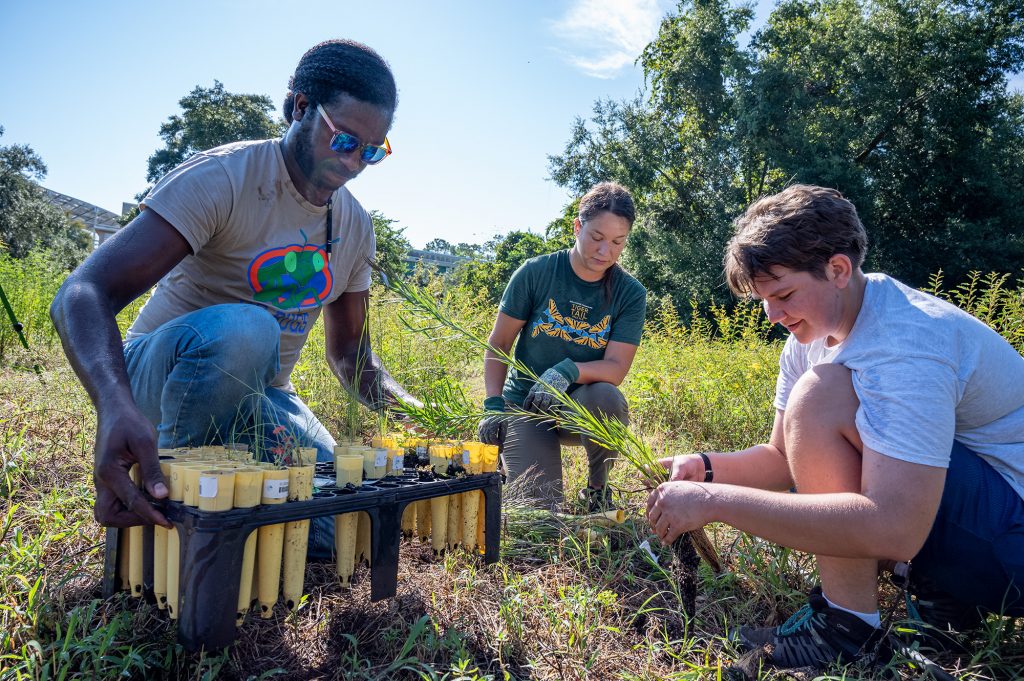
native grasses near the McGuire Center on Florida Wildflower Day. Florida Museum photo by Kristen Grace
New Species of Neotropical Butterflies
Over his 30 years of work in tropical South America, curator Keith Willmott has co-authored more than 150 scientific works on butterflies of the region and taught more than 50 students to conduct taxonomic research. During this process, one new subtribe, 12 new genera, 123 new species, and 116 new subspecies of butterflies have been described. Several former students now work to conserve Neotropical biodiversity.
- Systematics of Neotropical Butterflies
- Park rangers use butterflies to take planet’s pulse in a biodiversity hotspot
- Map of transparent butterflies highlights biodiversity hotspot in the Andes Mountains
Fundraising Opportunity
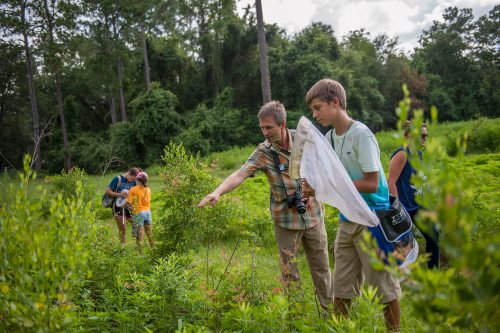
With the help of supporters like you, the McGuire Center has grown to include one of the world’s largest and most comprehensive Lepidoptera collections and has become the premier academic research center focused on moths and butterflies. Your gifts have enhanced every part of the McGuire Center.
You have funded innovative student research and provided grants that cover the costs of sharing research results at conferences and in prestigious peer-reviewed journals. You have brought researchers from around the world into the McGuire labs to collaborate with our scientists and curate the collections. You have supported pioneering research and donated the specimens that form the heart of the Center. Because of you, the McGuire Center is a thriving research enterprise with a bright future.
Thank you.
Please join us in celebrating 20 years of the McGuire Center with a gift to the McGuire Center Support Fund. Your donation will support the Center’s highest priorities.
Checks should be made out to the UF Foundation and mailed to Development, Florida Museum, P.O. Box 112710, Gainesville, FL, 32611, with a note that the gift is for the McGuire Center.
You may also give to a specific initiative.
